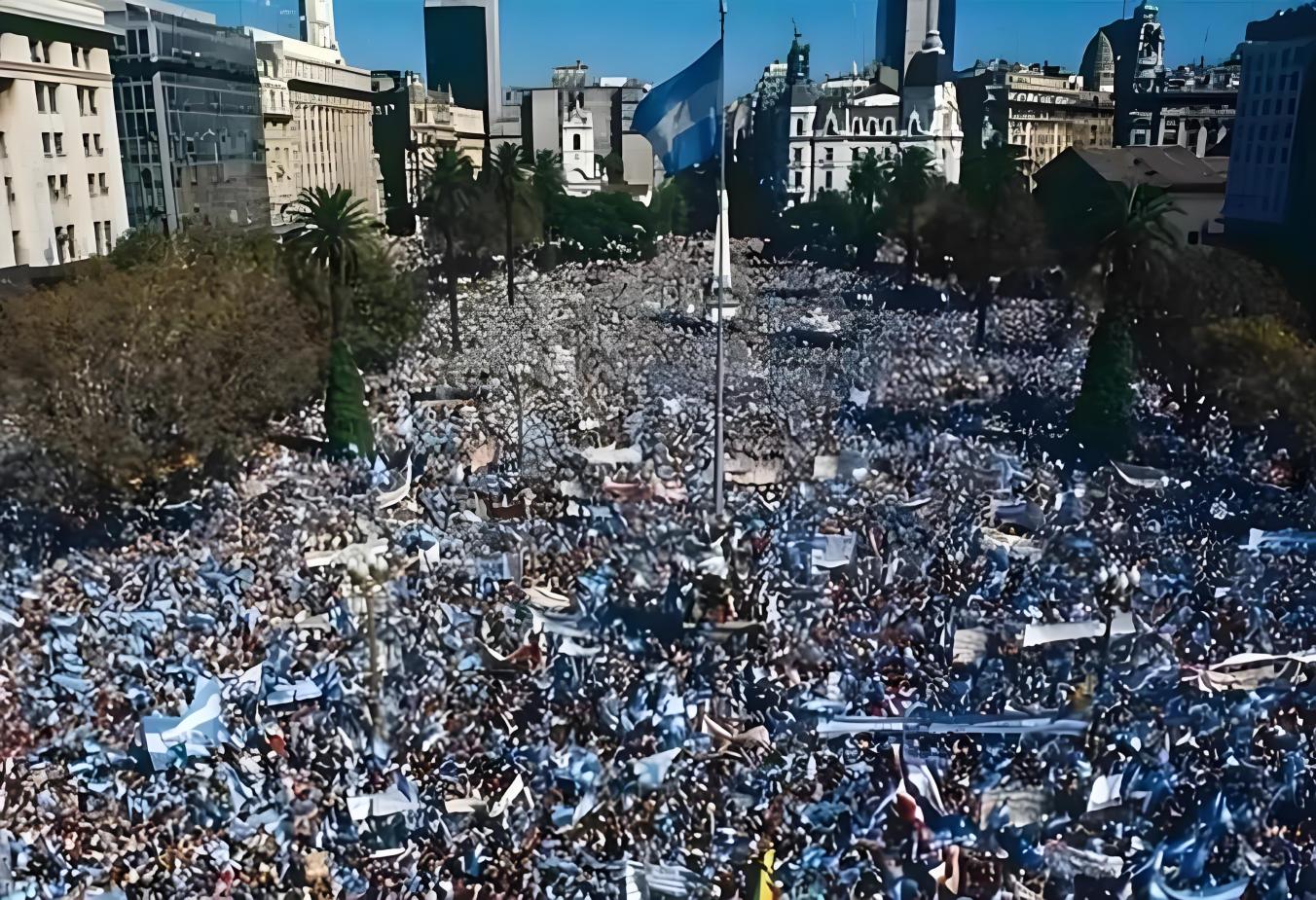
Recently, the Argentine government announced a series of emergency economic measures aimed at addressing the severe hyperinflation and debt default risks. However, these measures have not only failed to ease the economic plight but have instead triggered large-scale social protests.
In response to the economic crisis, the Argentine government decided to freeze public sector salaries and suspend pension adjustments. This decision is intended to cut government spending and relieve the financial pressure in the face of a three - digit inflation rate and a heavy debt burden. According to data from the International Monetary Fund (IMF), Argentina's inflation rate soared to [X]% in the past year, and the ratio of public debt to GDP has reached a worrying [X]%. The government hopes to stabilize the economic situation and avoid further debt defaults through these measures.
But these measures immediately sparked a strong social reaction. In the capital, Buenos Aires, tens of thousands of people took to the streets to protest against the government's decision. Demonstrators held up banners, demanding that the government revoke the decision to freeze salaries and pensions and calling on the government to take more effective measures to deal with the economic crisis. The protest activities were held in the main squares of the city center and in front of government buildings, and the police had to deploy a large number of police forces to maintain order.
This demonstration is one of the largest protests in Argentina in recent years, reflecting the public's dissatisfaction with the government's economic policies and concerns about future life. Many public sector employees said that freezing salaries would plunge their lives into hardship, and suspending pension adjustments has also seriously affected the quality of life of retirees. A civil servant participating in the demonstration said, "Our salaries can no longer keep up with the rate of inflation. Now that the government wants to freeze salaries, how can we live?"
Argentina's economic crisis did not emerge overnight. For years, Argentina has been facing serious problems such as high inflation, huge debts, and weak economic growth. In order to stimulate the economy, the government has repeatedly adopted monetary easing policies, leading to currency devaluation and aggravated inflation. At the same time, Argentina's foreign debt scale has been continuously expanding, increasing the risk of debt default day by day.
In the face of this economic crisis, the Argentine government said it will continue to promote economic reforms to restore economic stability. The government plans to gradually improve the economic situation through measures such as cutting spending, increasing taxes, and attracting foreign investment. However, these reform measures will take time to take effect and may cause more pain to the public in the short term.
The international community has shown concern about Argentina's economic crisis. The IMF has held several rounds of negotiations with the Argentine government to discuss the possibility of providing assistance. But the IMF requires the Argentine government to adopt more stringent economic reform measures to ensure the effective use of aid funds.
Argentina's economic crisis not only affects domestic social stability but also has a certain impact on the global economy. Argentina is an important global exporter of agricultural products. Its economic difficulties may lead to fluctuations in agricultural product prices and affect the global market supply.
The Argentine government faces huge challenges in dealing with the economic crisis. How to stabilize the economy while alleviating social conflicts is an urgent problem that the Argentine government needs to solve. In the future, Argentina's economic trend and social stability will become the focus of global attention.

报告显示,中国电力投资加速增长,预计2024年电网基建投资将超过5300亿元。
近日,市场迎来了一则引人注目的消息:工业巨头3M公司(MMM.N)在本周五公布了其季度业绩报告,随后股价飙升至近两年来的
最近,外媒给OpenAI算了笔账,今年可能要血亏50亿美元。
近日,巴黎奥运会和世界铁人三项协会联合发布了一项重大决定,宣布因塞纳河水质污染问题,原定于近期进行的奥运会铁人三项首次下
当地时间7月18日,法国巴黎发生了一起令人震惊的持刀袭警事件。
近期,一则重大消息在国际舞台上引起轩然大波,马来西亚宣布加入金砖国家。
调查发现,互联网和智能手机的使用干扰了韩国近五分之一学生的生活。